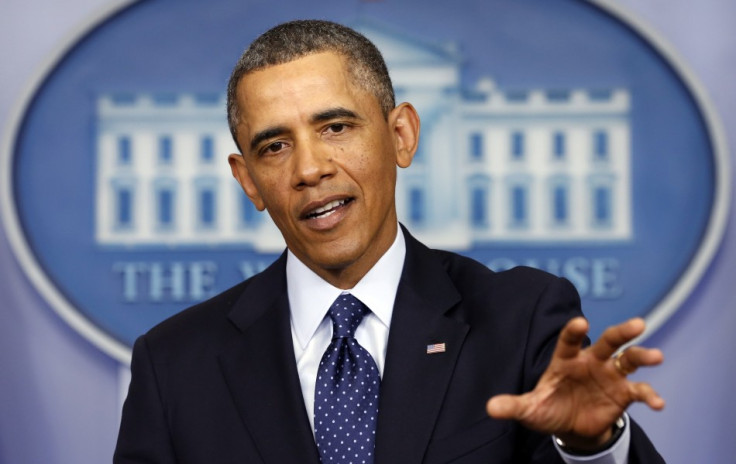Barack Obama Signs Sequester Order on Steep Spending Cuts
US economic growth could slow by 0.5 percent and cost 750,000 jobs

US President Barack Obama has been obliged to authorise severe spending cuts after a meeting of congressional leaders at the White House failed to reach agreement on cutting the deficit.
The spending cuts, known as the sequester, will slash $85bn (£56bn) off the US federal budget in 2013. The cuts will hit arbitrarily across all areas of government spending. They were never supposed to be implemented, but were designed as a 'Sword of Damocles' device to ensure that rival lawmakers would reach agreement before their introduction.
Obama, who has warned that the cuts will damage the US economy, blamed Republicans for the deadlock after the talks to avoid the spending cuts before Friday's deadline failed.
"They've allowed these cuts to happen because they refuse to budge on closing a single wasteful loophole to help reduce the deficit," he said.
"We shouldn't be making a series of dumb, arbitrary cuts to things that businesses depend on and workers depend on."
The International Monetary Fund had earlier warned that the cuts would result in a global economic slowdown. The sequester, to be rolled over the next few months, will not result in a government shutdown.
"The impact of this policy won't be felt overnight but it will be real," Obama said. "The longer these cuts are in place, the greater the damage."
For their part, Republicans blamed the president for his insistence on raising taxes to tackle the deficit problem.
The two parties could not reach agreement on Obama's plan to raise taxes to reduce the USA's $16.6tn federal debt. Obama believes that the cuts will slow down US economic growth by 0.5 percent and cost 750,000 jobs.
Half of the cuts will come from the defence budget, resulting in unpaid leave for thousands of civilian employees, reduced flight hours for warplanes, postponement of some equipment maintenance and cancellation of the deployment of a second aircraft carrier to the Gulf.
Republicans wanted deep spending cuts to balance the books, while Democrats favoured an increase in taxes.
At the end of 2012, Congress and the White House inked a deal to avoid the "fiscal cliff", that included expiring tax breaks and the sequester.
Republicans agreed with Obama's demand to raise taxes for the rich, and a decision on the spending cuts was postponed until 1 March to facilitate further discussions.
© Copyright IBTimes 2024. All rights reserved.






